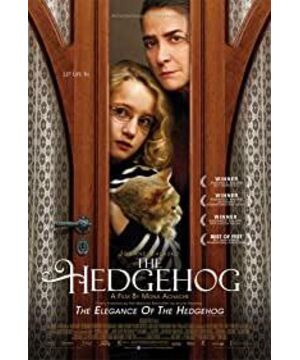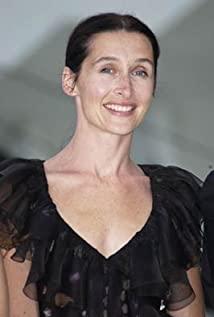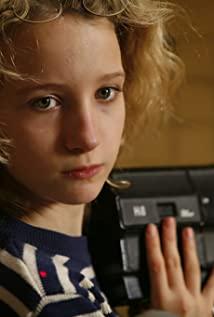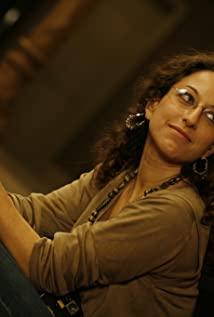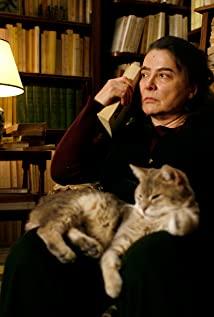I don't understand why the 2009 niche French movie "The Elegance of the Hedgehog" suddenly became popular this year?
Maybe it was popular at a certain sound or a certain station?
If you "watched" this movie in "Watch XXX in a few minutes", please cross it out in the upper right corner and do not send it.
Is it strange for an 11-year-old girl who wants to die? Is it the hypocrisy of the rich? Are you moved by the last lines of the film?
11 years old, talented girl, rich, but want to die, is it hypocritical? Why do you think so?
In fact, it was because she was afraid of death.
Um? Isn't it a contradiction to be afraid of death but want to commit suicide?
No, this is not contradictory.
Let's put down the concept of "fear of death" first and take a look at the girl's description of life -
The "absurdity of life" she mentioned here is actually the same as the "Myth of Sisyphus" by the Nobel Prize winner and French writer Camus.
In Greek mythology, Sisyphus was punished for pushing a boulder up a mountain, and when the stone reached the top, it would roll back to its original place, and he would repeat the act of pushing the stone forever.
Sisyphus' situation is a metaphor for people who live day in and day out but don't know why.
Since there is death, people live, grow, work, give birth, socialize, create... What is the meaning?
The heroine Paloma saw the absurdity of this life and decided to commit suicide to resist its absurdity.
Why does she think suicide can defy the absurdity of life?
Because, when people start to think about why they must live and what is the meaning of life since everyone is mortal, they will have the feeling of "how absurd life is".
Choosing suicide can give people a strong sense of control, making people feel that death seems to be under their own control.
This explains why Paloma is obsessed with dying on a certain day—her 12th birthday.
Um? But, are 11-year-olds afraid of death? Isn't it still the age to play in the mud?
Research by American psychiatrist and education expert Gregory Rochlin has shown that children are aware of death at an early age and express their fear of death by using words or actions to reject it.
And Paloma's choice to "finish a movie" also justifies her deep-seated fear of death.
From the pursuit of fame and fortune by ordinary people, the desire to reproduce, to artists keeping creating and writers keeping writing, they are all the pursuit of immortality and the resistance to death.
The concierge role in the film: Renee, also realizes the absurdity of life, and her choice is to retreat in her own small world and spend a long life with a lot of reading.
Her understanding of death can be seen from her favorite "Anna Karenina" and Tanizaki Junichiro's "Praise of Shadows".
In the book, although Anna ended her life by jumping off the track, she had a hot love; Tanizaki Junichiro's praise for the shadows shows the philosophy of death in Eastern culture:
Life and death depend on each other, just as light and dark go hand in hand. Only by knowing how to appreciate the shadow can we truly enjoy the light;
Lao Tzu's "birth leads to death" and Zhuang Tzu's "Ancient real people do not know the joy of life and do not know the evil of death" and other arguments all demonstrate this view of death.
And Heidegger, a German philosopher and one of the representatives of existentialism, put forward the concept of "living towards death",
It is also saying that only by facing death can we stimulate the true vitality of life and find the meaning of life.
etc.
Didn't I say before that life is absurd and meaningless?
Renowned psychologist Victor Frankl said in his book Living the Meaning of Life:
The meaning of life is different for everyone, every day and every moment, so what matters is not the universality of the meaning of life, but the special meaning of life for each person at a particular moment.
This is what Paloma said in the movie "It's not death that matters, it's what you do at the moment of death"
The most popular ending line for the audience is to give the concierge Renee life meaning through Paloma's mouth.
As it happens, Frankel recommends three ways to discover the meaning of life:
(1) By creating a job or undertaking a business
(2) By experiencing something or facing someone
(3) To adopt a certain attitude when enduring unavoidable suffering.
The Hedgehog's Elegance promotes the second method - by experiencing something - such as truth, goodness and beauty - by experiencing nature and culture or by experiencing the uniqueness of another person - which is to love someone.
Paloma cracked the code of the meaning of life in the self-questioning and self-answering echoes at the end of the movie.
Lucky for Paloma, who got the idea when she was less than 12 years old.
A lot of people have never been enlightened even in their entire lives.
Those who truly understand death know how to be responsible and empowered for life.
This does not mean to pursue fame and fortune or to create immortal works,
But in the face of a meaningless universe and absurd life,
still have the power to love,
Still acknowledging the preciousness of life,
Still choose to live hot...
Even if ordinary like you and me,
You can also enjoy a period of unsatisfactory eight or nine out of ten,
But it is still a wonderful, not to be missed journey of life.
View more about The Hedgehog reviews


